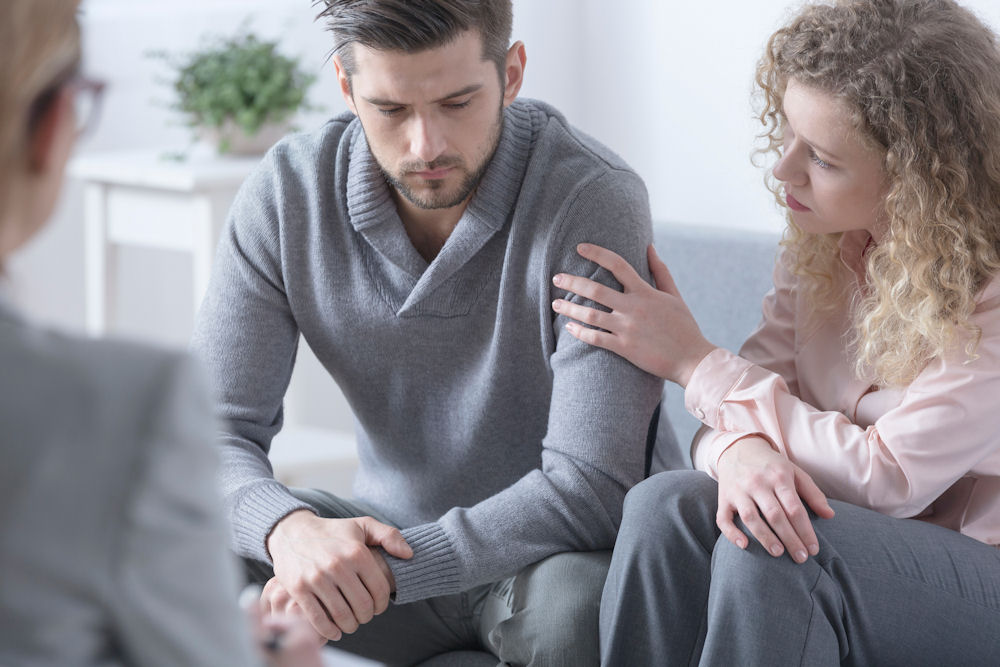Table of Contents
ToggleWhat Is Addiction Recovery?
Addiction recovery is the process by which a person who is dependent on addictive substances becomes able to live a fulfilling life without using those substances. Recovery is also an ongoing condition of mental, social, and physical improvement that has to be actively maintained, as there’s always a risk of relapsing back into addictive behaviors.
The Stages of a Relapse
Relapse is common in long-term recovery and begins long before a person resumes abusing substances, sometimes weeks or even months earlier. Although it’s possible for a person to spontaneously relapse, that’s typically not the case. As with addiction and recovery, relapse is a process, not a one-time event that occurs out of the blue.
A relapse has 3 stages which tend to occur in the same order for everyone. These 3 stages of relapse are emotional, mental, and physical relapse.
Emotional Relapse
Emotional relapse happens when people stop practicing good self-care habits. In emotional relapse, a person isn’t using yet and isn’t thinking about using, but the foundation for relapse is being built. Discontent, restlessness, irritability, and poor self-care are at the heart of the emotional stage of relapse.
These are some of the signs of the emotional relapse phase, as well as bad habits associated with it.
- Resuming one’s old and maladaptive ways of behaving
- Shifting your recovery focus to other people’s problems and “helping” them while avoiding your own issues
- Suppressing or denying your own emotions
- Skipping support group meetings
- Insisting that you’ve “figured out” your recovery and no longer need support
- Self-isolation
- Mood swings, temper outbursts, and anxiety attacks
- Defensiveness
- Poor sleep habits, poor nutritional habits
Mental Relapse
In mental relapse, a person wants to stay in sobriety but has begun to consider using again.
Signs of mental relapse include:
- Increased cravings to use their drug of choice
- Repetitive thoughts about the people, places, and things that were part of their life while in active addiction
- Spending time with friends you once used with, or people who are still in active addiction
- Glamorizing past use of drugs or alcohol while minimizing the consequences of past use
- Lying
- Thinking about ways to manage their use without it becoming uncontrollable
- Looking for opportunities to relapse
- Planning a relapse
Physical Relapse
In physical relapse, a person begins using drugs or alcohol again. The great danger of a physical relapse is not a single use or drink, but the high risk of a person resuming uncontrolled drinking or abusing substances. Relapse prevention is easier and more effective when it takes place before the relapse process has begun.
Risk Factors For a Relapse In Recovery
A risk factor for a return to abusing substances or drinking is called a relapse trigger. One person’s relapse trigger may not be the same as another’s, but these are the general categories of risk factors for relapse that can affect everyone in recovery.
- Re-association. Re-association means going back to the same people, places, and things a person was around when they were in active addiction.
- Poor self-care. It’s very easy to let oneself lapse into prior bad habits when it comes to taking care of ourselves. “Self-care” is a broad category that includes seeing one’s therapist or doctor regularly, attending support group meetings, meeting with a sponsor (if in AA or NA), getting plenty of sleep, eating healthily, and failing to make time for sober entertainment activities.
- Unmanaged stress. One of the most essential tools for staying in recovery and preventing relapse is learning how to manage stress healthily and effectively. Unmanaged stress is a large factor in most relapses.
- Unrealistic expectations. People in early recovery may expect too much of sobriety. Being in recovery does not guarantee that everything in a person’s life will go well. The same risks and pitfalls exist that were there before a person became addicted still exist, but sobriety allows a person to cope with life’s challenges more easily and more effectively.
However, improved coping mechanisms and stress management skills can only be employed if the recovering person learns and practices healthier ways to meet obstacles.
Failure to learn and practice healthy coping skills. Many people become addicted due to unmanageable burdens of stress, worry, and anxiety.
What Are Some Signs of a Relapse?
The earliest signs of relapse include negative changes in a person’s emotional state. Harmful emotions such as moodiness, anxiety, feelings of anger that may lead to temper outbursts, feelings of loneliness and isolation, and a decline in a person’s self-care begin to dominate a person’s life.
People who are early in recovery are also highly dependent on getting enough sleep, eating healthy foods, and seeing their physician or therapist as scheduled. Skipping support group meetings is also an early sign of relapse.
How Can I Identify Bad Habits That May Lead To Relapse?
Bad habits are nothing more than regular patterns of behavior that are harmful to a person’s physical or mental health. One way to identify a bad habit is to ask yourself what good will come from an action you’re going to take? Will what you want to do now help you in any lasting way?
Most bad habits in recovery satisfy a temporary urge but offer nothing more than a very brief respite. Breaking bad habits can be difficult, but so important.
Examples of Bad Habits
- Returning to the people, places, and things we associated with during addiction.
- Glamorizing one’s past addiction
- Starting intimate relationships within the first year to two years of recovery.
- Focusing on other people instead of your own recovery.
- Skipping support group meetings
- Skipping medical or therapy appointments
- Failing to practice good self-care
- Taking on too much stress
- Allowing negative feelings to build up without seeking help or support. These include fear, guilt, resentments, anxiety, loneliness, anger, and frustration.
- Failure to make time for sober entertainment.
Making A Plan To Help Avoid Relapsing
A relapse prevention plan is an essential part of all treatment plans to avoid relapse. It will include all of a person’s unique relapse triggers and a plan of action to counter each trigger. Relapse prevention plans also include highly individualized strategies for avoiding relapses and interventions in case a person does relapse.
At Agape Detox Center, we offer sustainable strategies for addiction recovery. We take a holistic approach that helps our patients achieve increased overall wellness. Call us now to speak with our admissions coordinators and to start the enrollment process.

Stephanie Robilio is an accomplished Clinical Director at Agape Behavioral Healthcare. With a Master of Social Work degree, LCSW license, and extensive training in Rapid Resolution Therapy under her belt, she brings a wealth of expertise to her role. Her unique combination of education and experience allows her to provide exceptional care to clients and lead her team with confidence. Stephanie’s joy comes from witnessing the moments when her patients creatively connect the dots and bravely move toward reclaiming their power. Her purpose is to help individuals understand their past so they can create a future full of hope, growth, and success. Stephanie attributes a large portion of her success to the supportive culture and strong sense of community fostered by the Agape team.





